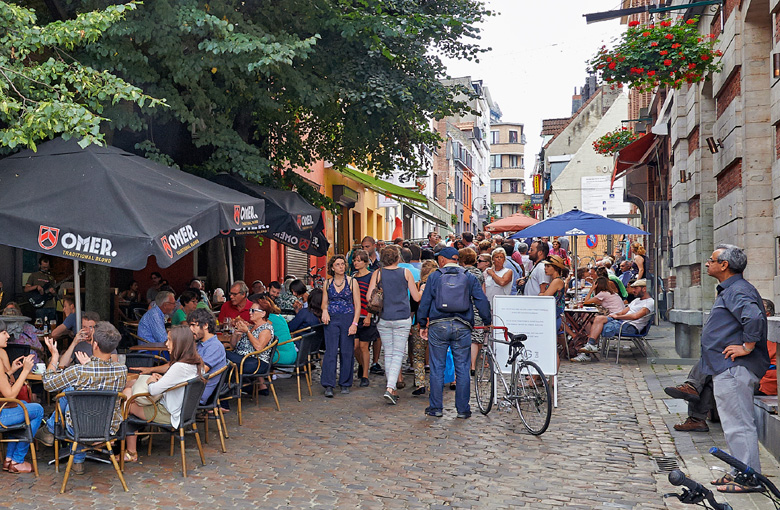
Location, location, location: It's more than an address
You already knew that decisions about where to locate your business involve factors such as size of space, type of space, common area expenses and rent. Now add to that the neighborhood characteristics, reputation and image that convey your identity and values -- co-branding the area with your business.
By Mark Stapp Fred E. Taylor
Professor of Real Estate Director, Master of Real Estate Development
Successful businesses constantly compete for their clients’ attention. Attention follows awareness, created by social media, advertising, promotional events and referrals. For many business owners, a physical address is important to achieving awareness. But how important? And are certain locations better than others? In real estate the adage is “location, location, location,” and it applies for business owners. The distinct strategic role of place in the business decision-making process is critical to understand.
For example, certain restaurants, hotels and retailers are in the business of providing space- and place-related “experiences,” so both the place (location) and the space (design of the place) are critical to their success. Other businesses also have a direct strategic link to a place but for different reasons. Whereas a chef-driven restaurant can be critically tied to its place, place bears little importance to a supplier of wholesale plumbing products. The furniture and home furnishing category is another good example of direct strategies linked to place, because they require easy access but the quality of the surrounding environment may not be as critical. I’m not talking about pragmatic location decisions -- I'm talking more about gaining awareness by being in an area that has an image and reputation that a business can leverage.
In some businesses, place and space are the very essence of the business strategy. While some people may go practically anywhere for great food, many may ignore what is on the plate if there is a gorgeous view or a perfect setting or if the design of the space is artful. But great food and service most times is not enough for success if the business is in the wrong place. Location alone will not make a place attractive and thus successful, nor will a well-designed space. It is how these two factors work together that can make a business desirable, sought-after and successful.
This sounds rudimentary, but it is not, and many times the relationship is misunderstood or ignored. In an era when authentic, contextual, local experiences are highly valued by consumers, picking the right place to locate your business is important. The concept of location extends beyond the individual space/building and its design, to the neighborhood, district or area and its reputation and images, which attract certain types of people. Finding the right area, populated by businesses that complement yours because they also offer what your customer wants and likes, can help create awareness. These synergies are what make an area desirable for businesses; they constitute a symbiotic relationship that helps the individual businesses in the area succeed.
You already knew that decisions about where to locate your business involve factors such as size of space, type of space, common area expenses and rent. Now add to that the neighborhood characteristics, reputation and image that convey your identity and values -- co-branding the area with your business. Association with a place can help support and define your image, speak to your customers and allow you to efficiently gain market share through association with the area.
The question becomes, how can you best connect who you are and how you are perceived with a place that already has an image and appeal? As metro Phoenix matures into a series of nodes and cores, each with its own distinctive character and image, finding the right one could be as important as the rent you pay.
"Getting Started" is an entrepreneurship column by the faculty of the W.P. Carey School of Business at Arizona State University. Mark Stapp is the director of the Master of Real Estate Development program at the W. P. Carey School. First published in The Arizona Republic, September 21, 2015.
Latest news
- Ethical leadership: Good policy may prompt bad behavior
New research findings reveal how managerial approaches to integrity influence team morale and…
- W. P. Carey alum Paridhi Saboo found passion for analytics and real estate during undergraduate journey
Thanks to the many opportunities available to students at W. P.
- Here's how artificial intelligence is impacting health care
Artificial intelligence is rapidly becoming integral to every facet of health care, from…